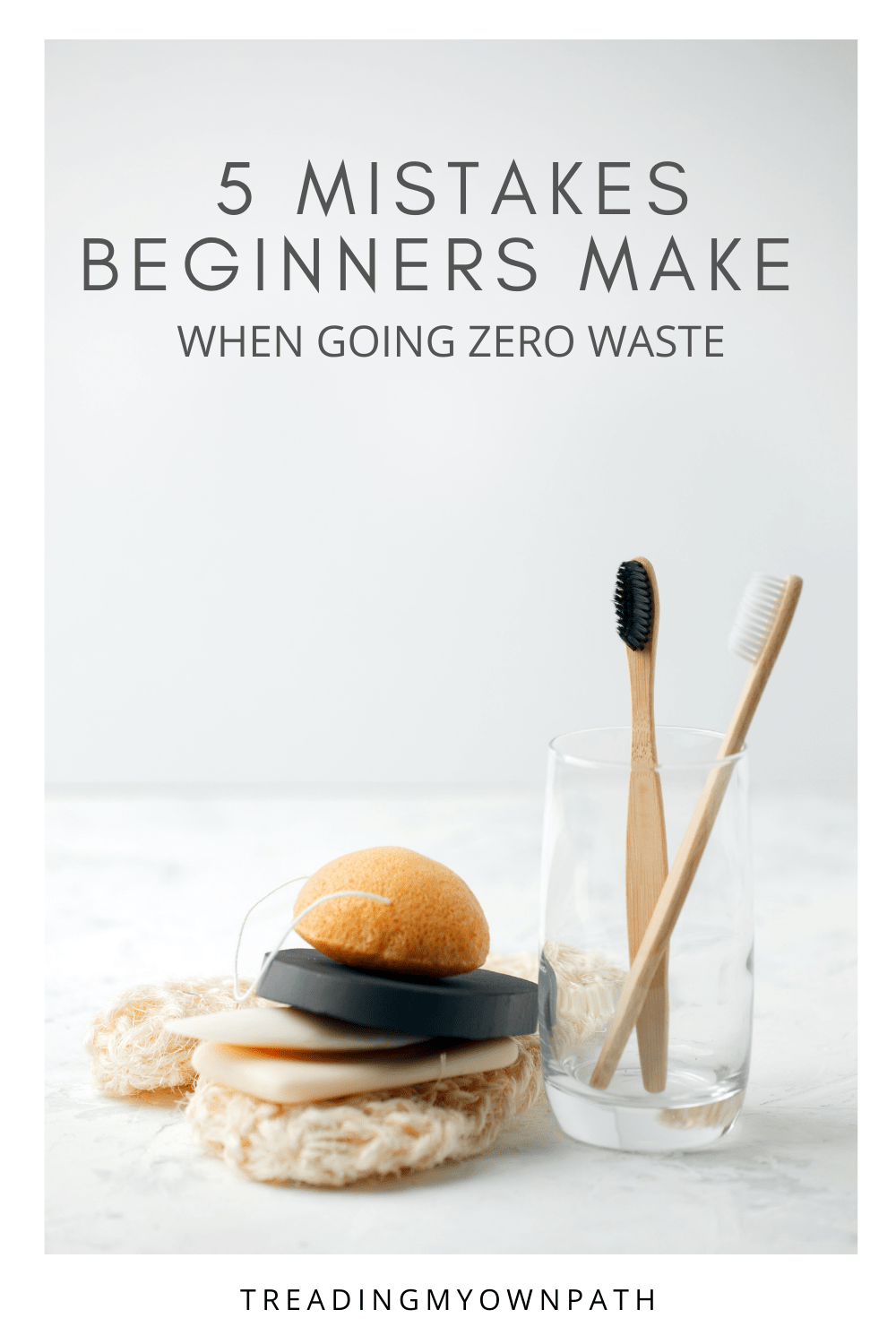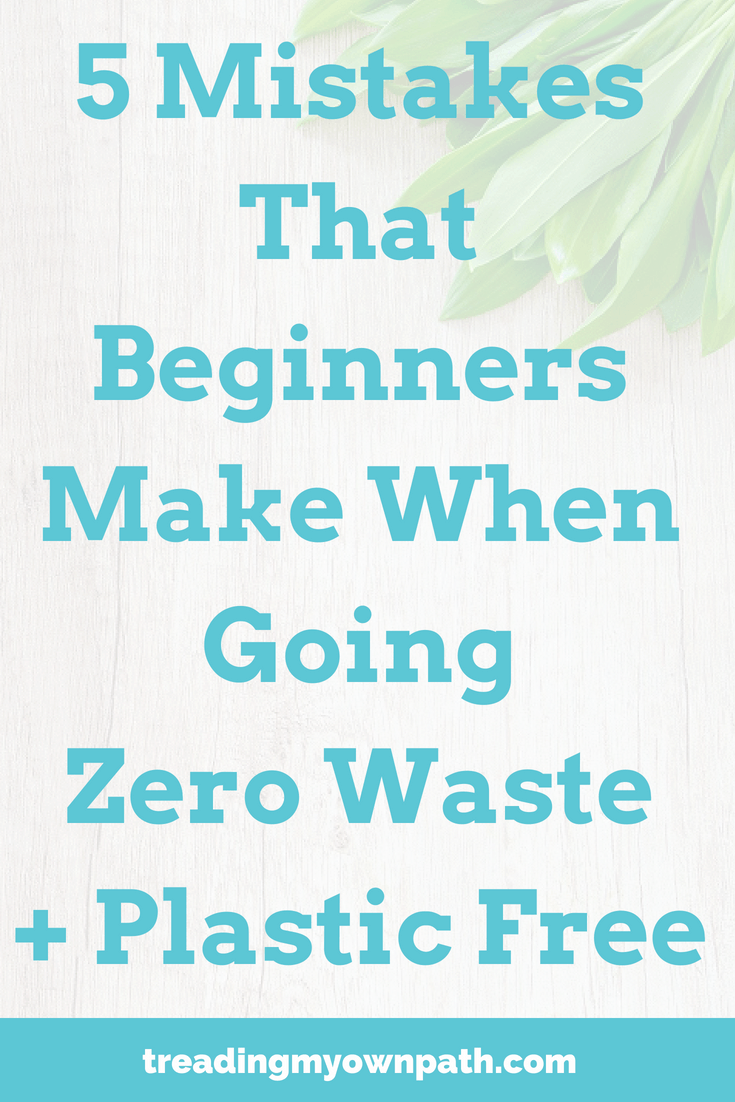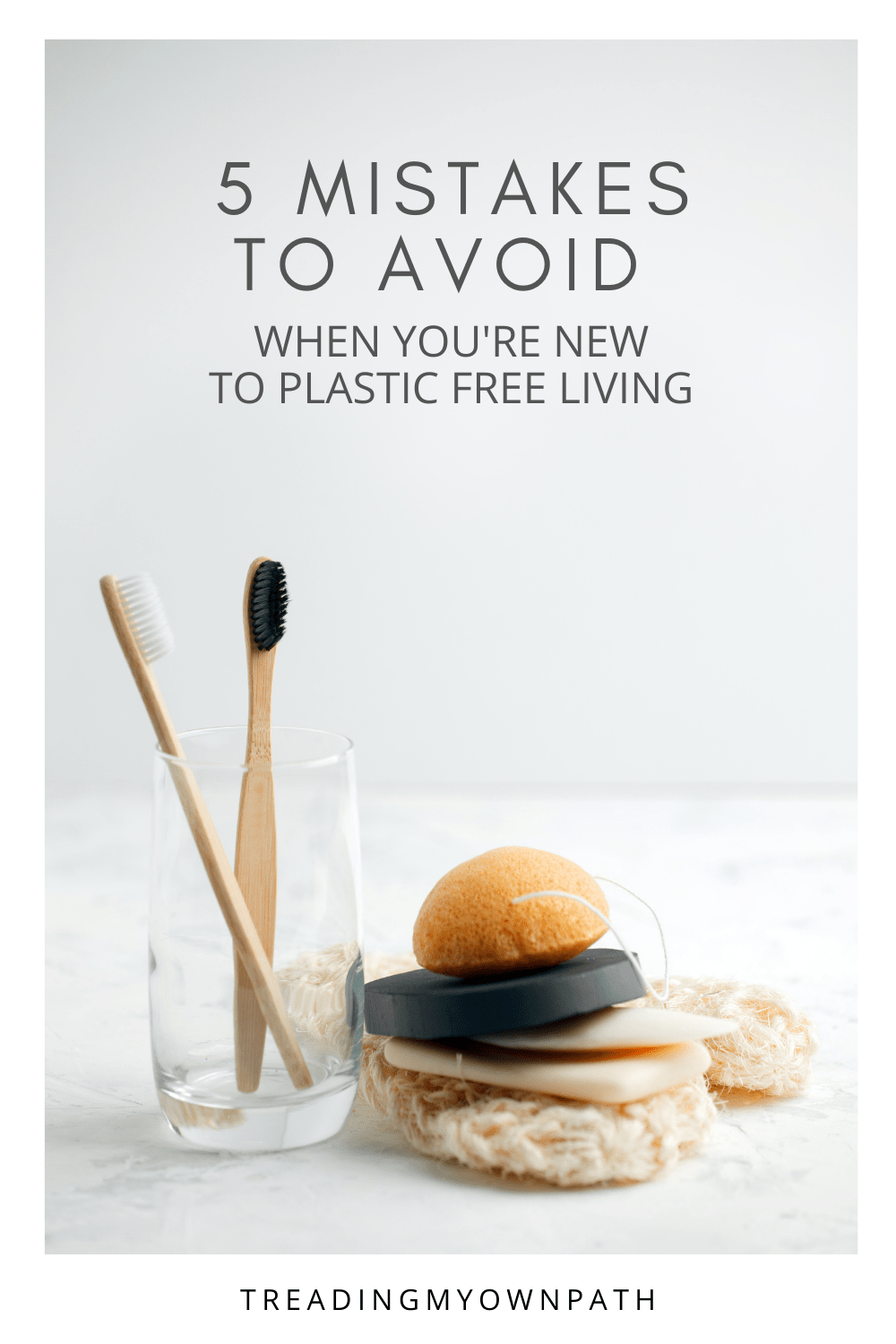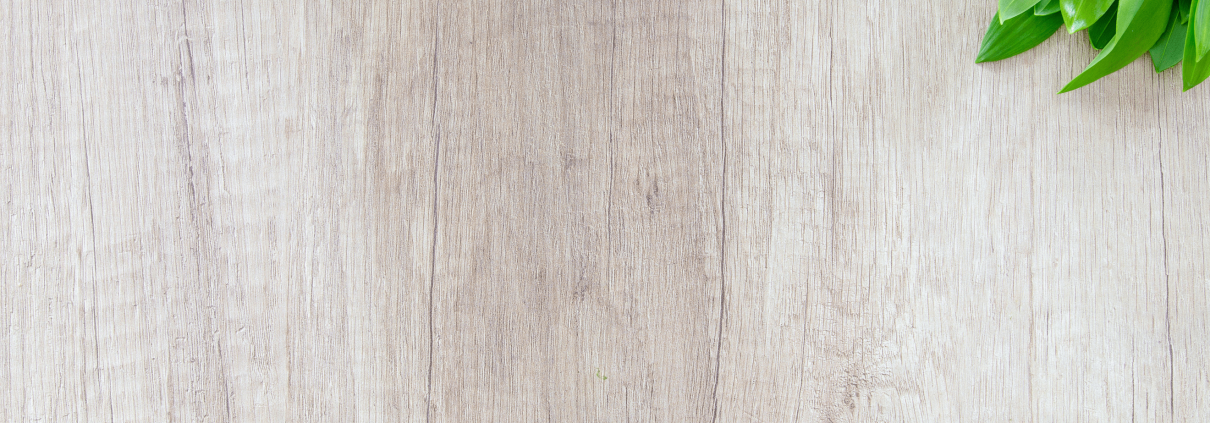5 Mistakes That Beginners Make When Going Zero Waste + Plastic Free
I don’t know about you, but when I set out to tackle a new project or challenge, I begin by feeling pretty excited about what I’m going to achieve. I feel good about making the commitment, I anticipate how great it’s going to be when I get there.
Only… not long after that, the doubt starts to set in. I realise the enormity of what I’m trying to tackle. I hit a stumbling block, and realise that the goal I set myself isn’t going to be such easy sailing.
It’s going to be hard work, and progress isn’t going to be a straight line.
It can be pretty disheartening after the euphoria of the beginning.
Can you relate?
However, progress is never a straight line, and there’s no need to give up just because things get a little tough. It’s all about practice, and chipping away, and bouncing back after we’ve been knocked down.
Time is always on our side.
No-one learns how to play the guitar in a few days, or speaks a language fluently in a week – so why should other habits be any different?
If you’ve set yourself the goal of really trying to live plastic-free and/or embrace zero waste, chances are you started out feeling great about what you want to achieve, only to feel deflated and overwhelmed as the days roll on. Whether you’ve struggled to find a good bulk store, argued with an obstinate customer service assistant who rolled their eyes and refused to let you use your own containers (or insisted on bagging them afterwards) or simply forgot your reusables because you were in a rush and took the single-use packaging without thinking – I promise you, we have all been there.
When that happens, dust yourself off, file it away under “experiences” and keep going.
We all make mistakes. If you’re a beginner on the zero waste journey, here’s 5 more common mistakes that people make, and how you can think differently about them.

Five mistakes that beginners make when going zero waste or plastic free
1. Not starting small.
It’s easy to focus so much on the end result that we forget this: big changes are really lots of small changes added together. Yes, the end goal is important. But the small actions are how we are going to get there.
If we want our expectations to meet our reality, we have to start small and achievable.
It’s much more motivating to pick a small, attainable goal and actually achieve it. That’s what spurs us on to take another action. Picking a wildly ambitious goal and then failing to meet it just makes us feel guilty, miserable and more like giving up.
If you’re new to zero waste and have never done anything to reduce your waste in the past, deciding that you’re going to go straight for the “all-my-waste-fitting-in-a-jam-jar” challenge in week 1 might be a step too far.
Why not start with sourcing a good set of reusables, and work on remembering to take them with you when you head out? Or choose one item that takes up a huge amount of space in your rubbish bin, and decide to find a low waste solution to that?
You’ll find some inspiration for micro actions you can take to reduce your waste here.
2. Feeling bad about the successes of others.
Comparisonitis is very real. We see other people doing things that we want to be doing, possibly better than we could ever do them, and we feel bad about ourselves. Social media makes it worse, as we are much more exposed to what others are doing.
But comparing ourselves to others isn’t helpful, especially when we feel miserable or disheartened as a result.
Rather than feeling bad about the successes of others, we can choose to celebrate with them. People make progress as a result of hard work, determination, and courage. Anyone ahead of us on the journey can share their experiences, help us make progress and shine a light on the path to take.
That’s a good thing, not a bad thing.
Personally, I think that social media is a tool for good, connecting us with great ideas and inspiring people. We can choose to follow people who motivate us and lift us up. People who write kind words, share ideas freely and build supportive communities.
If you find that you follow people who make you feel bad, you can stop that immediately by unfollowing them.
If we find that social media gets a little overwhelming, we can take time out.
If it doesn’t feel good, there is no need to do it. We have the control and the power to change it.
Try to celebrate the success of others. If you find this too difficult, choose to disconnect from it. It’s all a choice.
3. Letting the negative opinions of others influence your journey.
We all try to make the best decisions we can based on the knowledge we have, the time and resources available to us and our experiences. There is rarely a perfect choice, so we do what we think is best in that moment.
That doesn’t mean that our decisions are right for everyone, or are what others would choose.
I think the most important thing is to understand why we make the choices we make: to know why they feel right for us.
Others will have different ideas. Sometimes this feedback can be very useful. We can learn about other (and maybe better) ways of doing things. We can consider new perspectives, and factors we hadn’t considered before.
This can help us make better, and more informed, decisions next time.
Sometimes, although people are well-meaning, these comments can come across as overly critical or negative. It might not be what they say, but the way they say it, or what is implied.
You don’t make your own? I do.
You bought something new when you could have made do/found it second hand? That’s not zero waste.
Do you know it contains palm oil/is made in China/some other thing that’s terrible for the planet? I thought you cared about that.
I believe that most people mean well. Sometimes our passion and excitement for a subject can get in the way of thoughtfulness. Just remembering this fact can help us see past any unintended negativity.
Of course, sometimes people do try to catch us out. To point out our flaws and imperfections. Really, that says more about them than it does about us.
Regardless, there is often (but not always) an element of truth to consider in any negative feedback or comments. It’s worth taking a step back, considering the message and taking any feedback on board for next time.
It’s not worth dwelling on it, though. Or getting upset by it. Or letting it negatively influence our efforts.
Remember, people have no idea about your life. It’s your journey, and you’re figuring it out as best you can.
Negative feedback can be useful. Just don’t let it derail your plans.
4. Not seeing making bad choices as a learning experience.
On any journey we make decisions and choices that, with the benefit of hindsight, we wouldn’t make again. That’s part of the learning experience.
Bad choices are not a reason to give up. We all make them, and we will all continue to make them. Hopefully, the more we progress the less we’ll make, but there are no guarantees!
Making a bad decision, and realising that it was a bad decision, is what helps us make better decisions next time round. I would argue that making a bad decision is better than making no decision – taking action is how we get clarity.
Most decisions will be good, some will be not so good. It doesn’t matter.
5. Making things harder than they need to be.
Going plastic-free or zero waste is not about going without. That said, it can take time to find workable solutions for everything. There has to be balance, and in trying to find that balance we can tip a little too far the other way.
To find balance, we need to push things in order to find out just where the equilibrium lies.
However, if we go too far, we need to recognize that, and bring things back, or we will stress ourselves out and the whole thing will become unsustainable.
There’s plenty of ways that we can unintentionally make things harder for ourselves. Creating an unmanageable amount of work for ourselves by trying to make every single thing from scratch. Trying to ensure our entire family is zero waste or plastic-free rather than just focusing on ourselves. Tackling multiple challenges at once, like going zero waste, plastic-free, vegan, organic and local all together. Forgoing things we love (and that make us happy), or letting our health suffer for the “cause”.
We can only do what we can do. Some things we can maintain in the long-term, some things we can strive for only in the short-term, and other things just won’t work for us at all – at least not in the present.
Zero waste, plastic-free and sustainable living is not meant to feel like a chore. Its not meant to feel like a struggle. If it does, it might be time to take a step back and let some things go. There will be a time to try again.
There’s no benefit to anyone in making things harder than they need to be.
If you have any mistakes you’d like to add to this list, I’d love to hear them so please share! Were there any mistakes that you made when starting out? Are there any mistakes you see others make at the beginning of their journey? Anything else to add? Please share your thoughts below!
[leadpages_leadbox leadbox_id=1429a0746639c5] [/leadpages_leadbox]









Great points, Lindsay! I can really relate to the one about getting caught up on comparisons. When I first saw Bea Johnson with her family’s waste in that little jar, I kind of freaked out and felt like I was doing so badly – although I was in awe of course. Now that I’m a bit further along in my journey, I understand that it’s important to celebrate every little success of my own while still looking up to those who are further ahead on the zero waste continuum.
Thanks Lisa! The waste jar concept is an interesting one. Some people find it super motivating, and others find it super intimidating. For me I think I didn’t ever see a waste jar until I was fairly far along my own personal zero waste journey so I never felt the intimidation part, but I would never take my jar out in public because it doesn’t feel good for me. I like to take the moderate approach when encouraging people to make changes. Of course I think Bea is great! I think it’s important to have different voices. I get encouragement from people who are imperfect so I try to show my imperfections too. I think the jar is more a personal challenge for me, showcasing my own success.
Great post Lindsay, and a great reminder to everyone who is embarking on this journey. When I look back this time last year, I was forever forgetting my reusable shopping bags, and never considered a keepcup, bamboo toothbrush or reusable straw. I focussed on starting here, and now I’m at the point where I will never go back – it’s become my practice 100% of the time. I was very dubious that the bulk-purchase dish powder or laundry powder would work, but have been pleasantly surprised. Yes I still eat meat, and as I work I don’t have time to make many things from scratch, but I have tried a few small tasks eg muesli bars, and breadcrumbs (now I can’t believe I ever bought packaged breadcrumbs!) – it’s definitely a good start and I feel positive about it. Everyone should do what they can, and this will vary depending on access to items, budget and time factors – but the intent to reduce is a big start so we should be mindful that we are all on our own journey.
I loved this story Sharon, you captured the process of change so beautifully! (I’m guilty of having bought packaged breadcrumbs too in my past life.) It’s all about the small steps, and it can feel like we aren’t making an change in the present, but when we look back we can see how far we have come. And that feels great!
Great post – I had a moment before Christmas where I had reached a level of anxiety over trying to be zero waste and plastic free which was unhealthy for me and people around me. I had 2 good friends who gently reminded me of the importance of managing a healthy relationship with it and myself. I’ve now reached a place of accepting what I can do and what I can’t right now with budget, access and time constraints. I feel like it’s a better place to be and I feel more content with my choices and more inspired to do better moving forward rather than exhausted by it. Part of that has been about switching off from social media but mostly about cutting myself some slack and recognising where I am on the journey and making peace with it. Thanks for your positivity as always
That is very good advice Siobhain :) Sounds like you have very wise friends. It’s one thing to push boundaries and set goals and aspire to do better, but it’s important to not to let it all get to overwhelm, or let relationships suffer. And I say this having had my own battles with this at the end of last year. That’s why I want to spend this year slowing down a little, and really thinking about what’s good for me and what’s not – and where I can best expend my energy.
I agree, inspiration is much better than exhaustion!
Great reminders to do small things and not get frustrated when you forget reusables or fail at different things (ie. I tried a Bamboo toothbrush but it seemed to recede my gums due to the hard bristles). Family who isn’t as much on board can definitely be a major factor of frustration for me. I’ll have to make a list of maybe 5-10 things to change this year and try something different on the way to zero waste.
Sounds like a plan, Heather! Achievable plans are the ones we stick to, after all. I didn’t get on with bamboo toothbrushes either actually. Back in 2012 there weren’t so many brands to choose from, and the one I bought had all the bristles fall out in my mouth – and then get washed down the plughole. Plastic pollution! Now I have a toothbrush with a replacable head. I don’t lose fibres down the sink, and my teeth feel cleaner. Works for me!
I used to get so upset when someone put a straw in my drink when I requested none for example. Now I think about how I could avoid it happening again and shake it off. It’s much more peaceful and attainable. I’m not at Lindsay Miles’ level of waste reduction yet but I’m making a difference because I’m making other people think and even jump on board too
Peaceful and attainable – both things to aspire to, Sarah! No need to make ourselves or anyone else feel miserable in the process. And yes, what we do makes a difference :) Small things and big things, they all count.
Brilliant post, wish I’d read I when I started to out a year ago. LOL.
Thank you! Ah, maybe you might have dismissed it back then! ;)
Thank you for this post Lindsay.
Definitely, small steps are the way to go. I just started reducing my waste in 2017 – my target was to reduce the garbage by two – down to 1 or 2 x 17L trash bags per month (we are just two with a cat). And it worked! I also realized along the way that avoiding food waste is more important for me than reducing my garbage even further. So yes I will use plastic ziplocks to freeze uneaten food. The freezer being too small to use jars.
To each their own victories and own way!
Pleasure Claire. Food waste is such an important topic and so easy to make changes – in terms of what we buy, how we store it, how we use it, what we do with leftovers. So many points of intervention! Good luck :)
I can relate to these mistakes!
I suspect we all have, Liz! ;)
Wanting to buy all the stuff! I’m very bad for this. Every new project/hobby is the same, I want to purchase new kit for it. ZW has been no exception. I have had to talk myself down from spending money I can’t afford on the eco-version of things when there’s still lots of live left in my current things or I can repurpose (bamboo toothbrushes and cutlery sets for example).
I’m glad you were able to talk yourself down, Crystal! It’s definitely a habit we can wean ourselves off over time I buy things so rarely now that when I do it feels like a really big deal, and I treasure my purchases much more. I also know I definitely need them first! There’s a lot of lovely shiny things out there, but we don’t need to own them all to appreciate them :)
Your post was very refreshing! I’m in a zero-waste FB group which most of the time is very supportive, but once in a while people get stuck in the “not good enough” whirlwind and one of the moderators have to step in. It’s important to be reminded that even small changes, done over time, have a HUGE impact on the Earth. The very first thing I did (changing to reusable sanitary napkins) will save a whopping 3,600 pieces of trash in 5 years!
These are all great! Whilst I haven’t committed to a Zero Waste pledge, I’ve been really working hard at taking a silicone container, steel waterbottle and insulated mug with me so I don’t have to get any disposable containers and I’m always taking home any plastic or cardboard waste my colleagues have which I can salvage to recycle but I am increasingly getting annoyed with a colleague who buys her lunch and breakfast in disposable plastic every day and just chucks it in the bin. I’ve been getting v stressed over it but I just need to chill a bit and try to say I’ll.take it home to recycle for her and hope she eventually starts to think.
I so needed this post, as I embark on this journey myself. Keep reminding myself that small steps are better than no steps. Thank you for the reminder.
This is a really sensible article. I’ve only just started out (about 6 months ago) and I’m trying to identify each thing and look for alternatives one at a time. So far, we’ve changed toothbrushes and toothpaste (partner has gone back to paste, and I think will go back to a plastic toothbrush, but daughter and I are doing great), bought reusable foldable straws that we keep in our going out bag, and switched to a milkman. We have been reusing carrier bags forever (probably 20 years, because my mum did it when I was a child), but I might switch to fabric at some point. I’ve also been making yogurt for about 3 years. Just need to find a way to get daughter to eat it and not buy individual plastic pots. Partner and daughter have switched to shampoo bars, and I’m going to switch to conditioner bars, but dandruff shampoo in bars is not something that I can find, and is one thing I won’t compromise on. Cling film is next on the list, and making pasta as soon as the pasta cupboard is empty enough to put the pasta-maker in.
It’s about balance, and just tipping it slightly each time you can see a way to do it.
Thank you so much!
such amazing blog I really want to learn guitar but didn’t find the perfect way this blog help me a lot thanks for posting keep sharing such amazing blog post